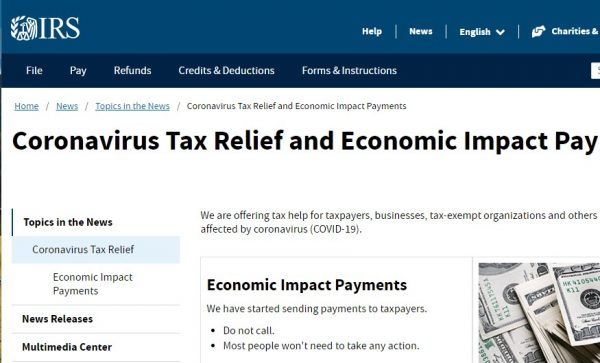We know there’s been a flood of information and updates about the government’s economic impact payments, or so-called stimulus checks, lately. But quickly and safely moving massive amounts of money into the hands of those who need it is a big job with a lot of moving parts. Some factors are ripe for Coronavirus stimulus payment scams.
We also know that the more you know about the process, the less likely you’re going to be tripped up by calls, text messages, or emails from scammers trying to steal your money or personal information.
Here’s what you need to know about the stimulus payments and how to avoid scams related to these payments.
Who will get money?
Adult U.S. residents that meet established income limits are eligible to receive money from the government. This includes:
- Taxpayers – people who filed a federal tax return for 2018 or 2019.
- Retirees – people who get Social Security, Railroad, or other retirement benefits.
- Beneficiaries – people who get public benefits like SSDI, disability, or veterans’ benefits.
- Non-filers – people who do not have to file a federal tax return, including people who made no income or made less than $12,200 (or $24,400 for married couples).
How will funds be distributed?
Most people don’t have to do anything to get their money because the IRS will use the same payment method – direct deposit, Direct Express debit card, or paper check – used to send you your tax refund, Social Security, retirement, or other government benefits money. If the IRS doesn’t have your direct deposit information, you can go to the “Get My Payment” feature at irs.gov/coronavirus and let them know where to send your direct deposit.
If you don’t usually file a tax return, go to irs.gov/coronavirus to access the “Non-filer” portal and to figure out what, if anything, you have to do to claim your money.
To check on the status of your payment, you can now use the “Get My Payment” feature at irs.gov/coronavirus.
Avoiding Coronavirus Stimulus Payment Scams
Scammers are using these stimulus payments to try to rip people off. They might try to get you to pay a fee to get your stimulus payment. Or they might try to convince you to give them your Social Security number, bank account, or government benefits debit card account number.
Four Tips for Avoiding a Coronavirus Stimulus Payment Scam
- Only use irs.gov/coronavirus to submit information to the IRS – and never in response to a call, text, or email.
- The IRS won’t contact you by phone, email, text message, or social media with information about your stimulus payment, or to ask you for your Social Security number, bank account, or government benefits debit card account number. Anyone who does is a scammer phishing for your information.
- You don’t have to pay to get your stimulus money.
- The IRS won’t tell you to deposit your stimulus check then send them money back because they paid you more than they owed you. That’s a fake check scam.
Report scams to the Federal Trade Commission at ftc.gov/complaint.
To keep up with the latest scams, sign up for the FTC’s consumer alerts.
